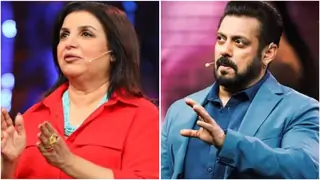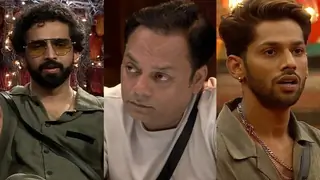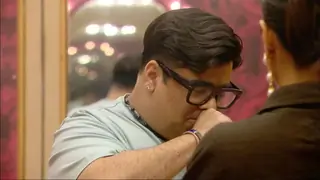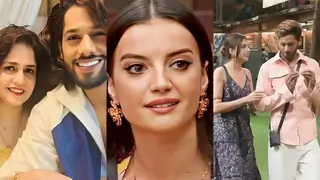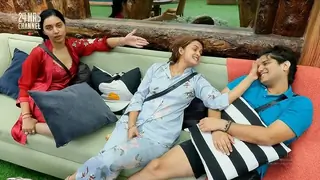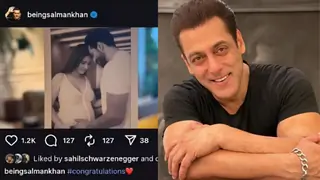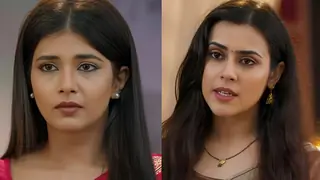Manohari Singh's Interview – October 13, 2009
Q. Please tell us about your association with Dada Burman.
Manohari Singh: He (SDB) always maintained a style of his own. He always gave good music and his songs used to be like nature, like 'matti smell', like earth smell. His music used to be like that. Folk tunes, Bhatiali, all this sort of ...east Bengal Bhatiali and east Bengal folk tunes also, all natural tunes of our nature, not ready made composed but natural songs. From that kind of tunes he used to develop and make songs.
When did you meet him first? Can you please tell us?
I met him in 1958, when I came to Bombay from Calcutta. Salil Choudhary brought me here. Salilda was very fond of me. We met in Calcutta when I was working for HMV - Calcutta. I was very young, some 24-25 years of age. 1958 he brought me here. He used to tell me every time when he used to come from Bombay1958. Salilda used to tell me that there is nothing left in Calcutta now. See all this partition and all. Not much picture also. Everything is finished in Calcutta. "Come with me" all the time he used to say.
In 1958 I came with him and he introduced me to every Music Director. We started from Juhu side. In Juhu there was nothing, only some Bungalows of Anil Biswas, Kishoreda and song writer and dancer Prem Dhawan. Salilda lived in Andheri (East) across the level crossing. He had a music room in Bimal Roy's Mohan studios.
Then Salilda brought me and said let's go and meet all the music directors. First he took me to Anil Biswas, then to Kishoreda who was staying next to him.
Then he told me let's go to Burman Dada's house. Then we went to Dada's house, 'Jet'. Burman Saab was told, 'He plays Flute, he plays Saxophone' and he said "Good, send him tomorrow. I have some background work in Bombay Lab."
After that Salilda took me to Naushad Saab, he was staying at Carter Road. Then he introduced me to C. Ramchandra, staying in a Bungalow in that corner. Anna was staying there. He used to be called 'Anna'. Chitra Gupt and Madan Mohan were also staying in Khar area. Then he took me to Mahalaxmi famous Studio and introduced me to Shankar Jaikishan and then Nayyar Saheb.
After one or two days I was called to Bombay Lab by Burman Saab for background music of 'Sitaron Se Aage' (1958). I played some key flute, but couldn't get chance to play the saxophone because the situation was like that the music was like that. Laxmikant (of the Laxmikant Pyarelal) was playing the mandolin, and Sumant Raj was there for flute, and Jaidev was there very much as assistant, and Pancham was also there,
After I played whatever was given to me, then Laxmikant came to me and asked me, "Accha aap kidhar Calcutta sen aaye to kya kya bajate hain. I told him. RD and Sumant Raj also came, all musicians came to me. They all said very good, very good, "Aap aisa aisa bajate hain, bahut accha hai. Aap idhar rehne wale hain?" I said yes, yes.
Those days all the musicians used to come and they never used to stay here for long. They used to come and go. From Calcutta so many musicians came, after one month or so, bhag gaya. Those days in '57, '58, '59 so many musicians came for one month, one and half month and go back. Unless and untill they get a good break, then only they will have confidence and stay back. Again they used to come back. Musicians like Shiv Kumar, he came once, and went back. And again he came back. Away from home, they were all scared and unhappy in new surroundings.
So, after playing flute for 'Sitaron Se Aage', I was called by Burman Saab once or twice for some other picture. Then after that for sometime I wasn't called. Then I went and met Pancham. There Laxmikant was there for some sitting. Laxmikant asked me "Aap Mandolin bhi bajate hain na". I said yes. "Accha aap Mandolin leke aao kal. Kal aap Mandolin leke aayenge Navketan mein." So I went there with Mandolin. Then I played that song of 'Kala Bazaar' Laxmikant and myself, 'Achcha Ji Main Haari, Piya Maan Jao Naa'.
So he had a heart attack?
Attack he had.
Which was the first time?
First time…, once he had eye operation at that time he had a little problem. Then after that, in his last year he had a heart attack, when he died.
Dada, 'Aradhana' picture I will come to. In Aradhana, Kersi was there, and you were also there?
Yes.
I talked to Kersi Lord that day, and he said that it was purely S. D. Burman's music, and during the recording of song 'Roop Tera Mastana', RDB wasn't even present.
Yes. That's correct, what Kersi said.
Aapko Main batata hoon, that gaana, bante bante finally uska jab finishing banta hai na, finishing mein aata hai na, uska kuch shape alag ban jaata hai, bol aata hai, bol ka wajan ho jaata hai, bolon ko wajan mein daalne se, idhar udhar karte karte, gaana shuruaat hota hai ek type ka tune mein; aur usko sajaate sajaate, usko banaate banaate, finally uska shape change ho jaata hai.
Woh 'Roop Tera Mastana', woh Dada ka hi gaana tha, woh gaane ko usne hi banaaya tha; Dada ne. Phir Kishoreda ne kuch idea diya, wajan diya, Kishoreda ne, ki aisa kuchh karenge gaane ke bol ko, 'Roop tera mastana' gaane ke bol ko thoda thoda wajan dekar phir baad mein Dada bola to "Arre Kishore accha us ko tune bana diya. Arre bahut achcha kiya tune Kishore, achcha usko bana diya."
Kishoreda bhi great composer, great actor, no doubt about that. Unhon ne kuch bol ko karke, kuch upar neeche karke, wajan idhar udhar daalke, gaane ko ek meter mein laya. Sur was not there, then after that ahste ahste usko sur improve hua, usko sur mein laya.
Par yeh normal hai, naturally assistants have to give suggestions to improve it. SDB aprove karenge nahin karenge, unke upar hai. That's what I feel.
Correct. Wohi baat hai, assistants always suggestion denge, accha suggestion hoga to woh lelega, line daal bhi dete hain aisa, kuch gaane mein, do char sur ke liye gaane ka roop hi alag ho jaata hai. Aisa hota haina na, so why not accept it, aisa bhi hota hai.
Credit goes to Burman. Haan, Kersi correct bolta hai.
'Aradhana' ka music sab S. D. Burman Saab ka hi hai. Poora music Burman Saab ka hai. Haan, RD is mein involve nahin hai. Nahin, RD is mein involve nahin hai.
That you are saying, because you were personally involved. 'Aradhana' mein aap Asst Music Director the.
Main Assistant Music Director tha 'Aradhana' mein. Mera poora arrangement tha us mein. Mera saath Basu Chakraborty bhi tha, mera partner. Main aur Basu music director bane the hum log, 'Basu Manohari'. Hum logon ne music diya, 'Sabse Bada Rupaiya' aur kafi picture. Basu bhi tha. Humlogon ne milke kiya. Doosri baat yeh bhi hai, thora sa gaana sajana ke time mein, Burman saab ne humlog ke upar chod diya, 'Usko Yeh hai, uska yeh roop batao, uska yeh roop dikhana. Thoda modern hai, aisa hai, yeh hai, who hai, thoda sexy banana. Burman Saab thora aise bolte rahte they.
To hum logon ne socha chalo, theek hai, uska rhythm pattern fix kiya. Usmein kaun: main, Basu, Maruti, Pancham. Pancham bhi assistant hi tha full. Sab hum log wahan baithke rhythm ka pattern set karke aur uske baad tune ke upar aisa ………………………
filler hota hai, aisa banaya, hum log sab milke usko sajaya. In sajawat mein contribution sab ka hai, mera hai, RD ka hai, Basu ka hai, Maruti ka hai. Maruti rhythm section ka poora dekh bhaal karta tha.
So it was team work. Hamara team bhi accha tha, bahut hi accha tha. SDBurman ka, RDBurman ka, dono ka team, it goes as a team work, aur assistant arranger sabhka, jo jitna ho sake, gaana ko khubsurat banana. That was their responsibility. Hum log karte the.
To usme poora arrangement mera tha. Completely, gaane ka upar arrangement karne ke liye poora responsibility mera tha. Likhna, score banana, usko arrangement karna gaane ko aage peeche karna, that was my contribution. Yeh hi har assistant ka kaam hota tha jyada karke. Assistant log ka kaafi kaam hota hai, kaafi contribution hota hai. SD Burman ke liye kiya, RD ke liye bhi kiya.
Aur kaunsi kaunsi picture aapne SD ke saath ki?
Maine shuroo kiya in 1958 'Sitaron Se Aage' se, as a player shuroo kiya, Baad mein mujhe bulate rahe, 'Kala Bazzar', 'Kala Pani', aisa hi karte rahe.
Phir baad mein unhon ne mujhe assistant banaya, woh hai Shakti Samant ki picture 'Insaan Jaag Utha' with Sunil Dutt and Madhubala. So 'Insan Jag Utha' picture se hum logon ko, Main aur Basu bhi tha saath mein, as an assistant arranger ke tarike chance diya .
Uske baad to hum log karte gaye, kafi kya kya picture, 'Teen Deviyaan', 'Dr Vidya', 'Teri Surat Meri Aankhen', 'Talash', etc. 'Jewel Thief' mera hi hai, 'Guide' mera hi hai.
Last unka picture humne kiya, 'Tere Mere Sapne'. Because thoda sa khat pat hua. Us time mein RD ka accha kaam chal gaya tha. RD establish ho gaya tha. To hum log ko Madras Jana para, background music ke liye. Gemini ki picture, "Lakhon mein ek'. Us time tak hum dono ke liye kar rahe the.
Uske baad kuch aisa crisis ho gaya ki unka (SDB) bhi background chal raha tha, 'Tere Mere Sapne' ka, aur humlog ko 'Lakhon Mein Ek' (RDB) ke liye background mein Madras Jana para. And both were urgent. To humko unko chod ke jana pada. Dono ko: Basu ko aur mujhe. To Burman Saab naraz ho gaye, kyon ki purane zamane ke aadmi hai na., "Hamara kaam kaise chod ke jaa rahe ho", aisa, waisa, halan ki unka hi beta ka kaam hai. Man mein zara hota hai na, purane zamane ke aadmi ko, baap ho ya beta ho.
S0 Dada Burman's work was held up, midway?
Haan, ek hi shift baaki tha. Uske liye unko gusa ho gaya. To humlog ko bola, nahi bulayenge abhi. Anyway, unke bete ke liye gaye the. But he was alright, humlogon ke saath uske baad. Bahut respect, maan dete the unko humlog. Baat cheet karna, sab kuch theek tha.
Then after some time ek do gaane ke liye hum log ko bulaye bhi the. Basu ne arrangement kiya tha. I went for playing also. Barood ka gana thaa……..
Baaki that was the last picture, baad mein chod diya.
And Meera Burman took over as an assistant?
Woh assistant to thi pehle sen unka gana hai.. indirectly, unka bhi haath tha. She was a good singer. Love marriage thi. She was a radio singer. Burman saab bhi radio mein gaate the. Aisee baat nahin hai, who guni thi kaafi.
Burman saab theek the. Body para hua tha 'Jet' mein, aur Milli release hua tha, unka gana baj raha tha. Bahar sunai de raha tha uske ghar mein. Log bol rahe the, "Dekh, guzar gaya, aaj uska body para hua hai, aur picture abhi release hua. Isko bolte hain Music Director. Last dam tak aisa kaam karke gaya. Kehne ka matlab, ki abhi release hua, inka naya picture.
So that was his prime, naam karke gaye duniya mein, jaate jaate bhi unka accha kaam karke gaye. Bhabhiji bahut taqleef mein thi. RD jaane ke baad paralyse ho gayi thi.
Burman Saab expired in Jet. After he died, then Raheja took over the 'Jet' and he gave one small flat here, very good flat it was, where Pancham and his mother were staying. Pancham ka wahan ek 'Odina' tha, flat liya idhar, us 'Odina' mein kaam hua. Accha remarkable kaam hua 'Odina' mein'. So Odina was there.
'Odina' was the name of the building?
Yes. Jahaan woh rehta tha, Maryland, uske just opposite mein, woh school hai na, Usika chowk ke opposite side mein. Uska Chowk bana hai na, uske opposite side mein. Wohi building se, usne baad mein, yehi Maryland liya. RD expired in Maryland, Odina bechke. In between another one building liya tha, woh building Khar mein hai, near that Madhu park. Woh building mein Asha bai rehti hai, jyada idhar hi rehti hai. Peddar Road mein kam rehti hai. Yeh Maryland, is mein RD Burman rehte rehte guzar gaye, woh bhi poora floor unka tha.
SDB died in Jet, during release of Milli, his body was lying there.
Dada, SD ki team mein kul kitne musicians the:
Team mein hum log. Orchestra alag thi, jab rehearsal hota tha na, bahar se hum violin, flute, cello, sab lete the na, sab milakar 60 - 70 hote the musicians. 20-25 violin, tabla, dholak, Sab milake 50-60 hote the.
'Hum bekhudi mein pukare chale gaye' mein kitne the?
Tabla and that's all. Different, different type ke gana pe hai, char musicians bhi hai, paanch bhi hai.
Musicians itna kum bhi nahin lete the hum log aane ke baad. Jaisa jaisa thoda bhara hua chahiye. Burman saab kum Violin lete the, 15-20 violin lete the. Hamare taraf sen unko bol bol ke, achha bhara hua karte the.
Music bhi 8 second 10 second karte the. "Tum log lamba music mat karna. Hamara gana koi sunega nahin, tumara music sunega." Yeh Burman saab ka bolne ka tha.
Hum log unko bolte the, "Dada, aaj kal dekhiye, kitna bhara bhara music karte hain Shankar Jaikishan, OP Nayyar saab, Sab ka naam lete the hum log. 8 second mein Kya hoga. Bolke bolke khali 10-12 second tak bus.
Kar kar ke kabhie 15 second kisi kisi gane mein, jaise 'Guide' mein, 'Jewel Thief' mein, kar kar ke badaya. To matlab, aisa unka nature tha. Woh bolte the, "Jyada music lamba nahin karna, mera gaana koi nahin sunega, khali 7-8 second karo. Hum log 7-8 second bolke chale jayenge. Burman saab, as a practice, Orchestra kum lete the.
Us 'Jewel Thief' ke gane 'Hoton pe aur aisi baat' mein unhon ne kam se kam 20-25 Rhythm tha, Ruby, Tarang, Bangla Dhol, Bhaaz, tabla tarang, - kitna type ka rhythm dikhaya hai, usmein dikhaya. Dance ke time mein, item ke time mein, har type ka rhythm dikhaya. Bungla dhol, Burmese dhol, sab tha. Sound ke liye, effect ke liye. Tibetan type ka who sab music bhi bhara hua. Kya dance music.
Woh dance music kya hai, "Hoton pe aisi baat". Arre baap re. Aaj ke zamane mein koi kar nahin sakta hai. Ek misaal ke taur se hai. Kaisa situation mein, kaisa music diya hai. Dekho, Yeh sabh misaal hai.
How many musicians are in that song?
Bhara tha. Kam se kam 60-70 musicians honge. Araam se. Usme bhi tha, Guide mein bhi tha, "Piya tose naina lage re" mein. Bhara Bhara hua tha.
Achha aap 'Amar Prem' mein the kya?
Haan haan. Main RD Burman ka all the pictures mein tha last tak. '1942 A Love Story' back ground complete kiya maine. I started from 'Bhoot Bungla' background music. Pehla picture uska hai 'Chote Nawab'.
'Chote Nawab' mein Mehmood ne kya chalaki kiya. Pancham humko rakhte the. Unhon ne Laxmikant Pyarelal ko rakha to unko bhi kaam milega aur in log to hai RD Burman ke saath, player bhi hai, solo jo hai Manohari bajayega. So naturally unko liya assistant. Unhone bola "theek hai, don't worry, tum log ho, yeh ek do picture ke liye bhaijaan, uska iccha hai, woh chahta hai, sab ka maal mile, tumhara mile, hamara mile, Laxmikant Pyarelal sabh ka contribution mile."
Toh wo zara idea laga ke matlab usne LP ko bulaya, equal as an assistant. Baad mein 'Bhoot Bungla' mein unka picture mein LP ne khud ne bola, "Dekho hum zara busy ho gaye hai to hum ko zara mushkil hoga aap ka saath hamara bhi picture karna equal as an assistant. Hum ko apna kaam karne mein zara dhyaan dene mein zaroorat paregi. Tumhara kaam karne ke liye hamara time nahi de sakte to hum ko zara chod na parega. Basu Manohari sen zara kaam karwalo."
Phir mujhse baat hua, main bola theek hai, theek hai. Usko (Mehmood ko) maloom par gaya, confidence mil gaya, ki bhai in log kar sakte hai. Dekh liya ek picture mein, kya hua, kaisa hua. Sab kuch samajhne mein aa gaya usko, 'Chotte nawab' mein, so naturally, 'Bhoot Bungla' mein bhi ek do gaana LP ne liya tha.
Background gana, title song, 'Bhoot Bungla' us mein thoda sa western type tha. Woh gana se humlog ka entry hua. Uske baad 'Bhoot Bungla' back ground music se last tak mein RD ke saath tha.
Aur kuch aap kehna chahenge SD ke bare mein?
Unke liye hame shabad nahi hai, aise great composer The. Aur jab tak main hoon, unka yaad rahe ga hamen. Aur aisa composer nahi honge kabhie, aisa mera bolna hai. Guni aadmi the. Bahut accha, Bahut acche the. Ek gifted bhi hota hai. Mehnat se bhi hota hai.
Any anecdote ya kuch yaad ho, hansi mazak, choti moti baaten?
Hansi majak aisa hi tha, kabhi bas khush ho jate the, "Theek se karo, ek paan khilaonga tumko." Ek paan khila dete the. (Laughs) Achha khush ho gaya to. Nahi to paan ekdam chhupa ke rakhte the (everyone laughs). Haan aisa. Calcutta paan ekdam woh udhar se, Shivaji Park ka who dukan tha, wahan se unka paan dabba mein aata tha. To chhupa ke rakhte the usko dabe mein. Kissi ko denge nahi. Yehi sab tha unka nature wise, aur khush hone ke baad ek paan khila dete the, "Lo, paan kha", Majrooh saab ko bolte the, "Mojrooh, ek paan lele".
Yeh sab hansi mazak to theek tha, accha hi tha. Zara simple se the, koi aadmi kuch bola to bolenge, "Hatao." Koi bola na uske bare mein toh bolenge," Hatao,
Dil ke saaf the, jo sunege woh believe karenge. Purane zamane ke aadme the. Mati sen unka connection tha, aisa type ke the. So pure, so pure. Purane zamane ke aadmi, chalaki chuturai nahi jaante the.
Thank you very much, God bless you, and give you good health.
Accha laga aap aaye,
* * * * *
Other Inputs by Manohari Singh and His Family Members:
Visit to Hindustan Recording Company in 1945-'46:
Manohari Singh had visited the office of M/s Hindustan Recording Company sometime in 1945-1946 for work, and found two photographs hanging there , one of K. L. Saigal and the other of a gentleman wearing a turban (a saafa), looking regal. He asked them as to who was the turbaned gentleman in the photograph, and was told that it was Kumar Sachin Deb Burman, being from the Royal family of Tripura, he was wearing a turban.
Sachinda, in his autobiography has written this about 'Pagri':
"There is a proverb in Hindi, 'Raag, Rasui and Pagri, kabhi kabhi ban jaye' (good music, delicious food and properly tied turban are made accidentally).
Meera Dev Burman:
Manohari Singh's daughter Mithu had this to say about Meera Dev Burman,
We (she and some of her siblings, in all there were five sisters and two brothers), studied in boarding schools and stayed in Hostels. Whenever we came to visit our parents in Bombay for our holidays, Mrs Burman would insist that we go over to her large house and enjoy ourselves. She would regularly send over her car with driver to fetch us so that we had no excuse whatsoever. We would all go over to spend the day. Mrs Manohari Singh, who used to accompany the kids, agreed with this statement.
SDB's height: On being asked, Manohari Singh said that he was very tall, and his height would be about 6 feet.
Manohari Singh's health: Unfortunately, both his kidneys have failed and he is on dialysis thrice a week. Otherwise, he is very active and regularly plays Saxophone, Flute, etc., and gets standing ovation in performances all over India. His memory is very sharp and he is a very mild mannered gentleman.
* * * * *
Manohari Singh was interviewed on
October 13, 2009
by Moti Lalwani and Ms Richa Lakhanpal











